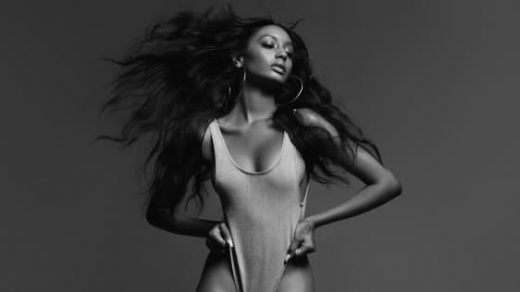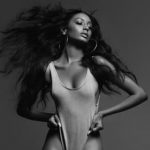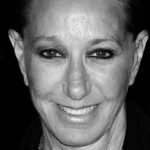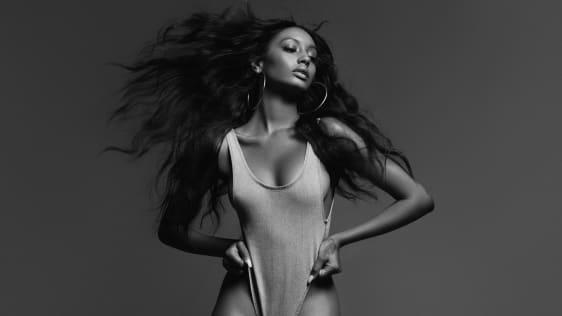Good American’s CEO On Being The Only Black Woman In The Room: “I Don’t Notice”
Emma Grede never really thought much about race until she moved to the U.S. to launch denim brand Good American with Khloe Kardashian.
Growing up in London, the daughter of immigrants from Jamaica and Trinidad, she was surrounded by people from so many different ethnicities that nobody really bothered talking about diversity: It was the norm. There were times, of course, when she was the only black woman in the office or at a board meeting. But, coming from her background, she wasn’t overly concerned about standing out or being pigeonholed. And coming from a place of confidence, she believes, is what allowed her to rise through the fashion and entertainment industries. By the time she was in her mid-twenties, she had founded ITB Worldwide, an enormously successful talent management and marketing agency, where she was making deals with brands like Dior, Lacoste, and Alexander Wang.
But then she moved to the Los Angeles to start Good American and the fact that she was black suddenly became a very big deal. Grede is often asked to talk about what it is like to be a black female CEO. “It’s a difficult thing for me to comment on, because I come from a place where I have just never really thought about it in such–and I hate to use this phrase–black and white terms,” she tells me. “I never really have.”
In some ways, she believes that not focusing on the color of your own skin is the ideal way to push forward in the fashion industry, where people of color aren’t well-represented. Her message to aspiring fashion designers and entrepreneurs is to behave as if race is not an issue. And if you confront a situation in which someone tries to marginalize you, quickly move on until you’ve achieved the career you’ve dreamed about. ” Someone has to come first and be the first black person in that office,” she says. “At some point, you’ve just got to move forward and not give a shit.”
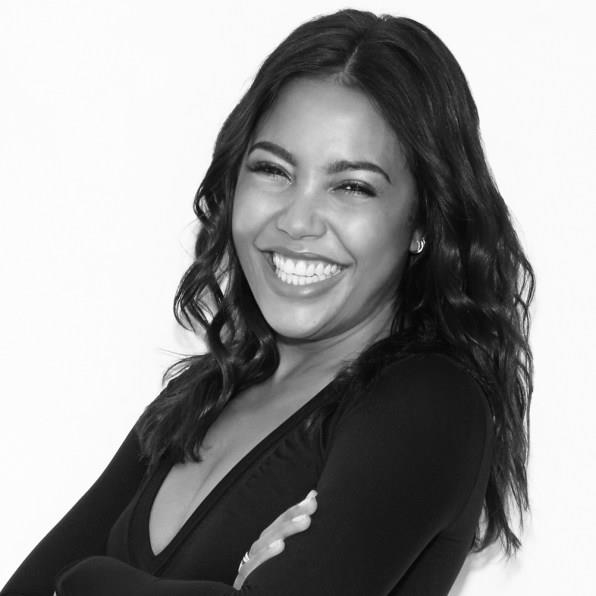
I sat down with Grede to talk about her ascent in the fashion industry, and how she now thinks about the race question.
Fast Company: Tell me a little about your background.
Emma Grede: I grew up in London, which is about as multicultural as it gets. And more than that, I grew up in East London, where the immigrant population and the black population is dominant. Coming from this community meant that there were not many people I knew who were working in fashion.
FC: How did you establish yourself in the fashion industry?
EG: I came up in the business working in fashion from a really young age. And I’m talking about working in retail, PR offices, and design offices.
I was lucky enough in London to find mentors and role models that were from all different backgrounds. I worked with an incredible Iranian designer who ran a company called Gharani Strok. At the time, she was the hot thing at London Fashion Week. So, for me personally, I haven’t had a lack of influences who were women of color. And I think that’s just largely because I was in London and Europe.
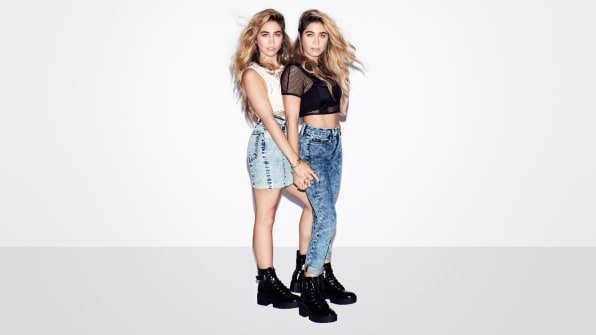
There really is an influx of people that come from everywhere, and it’s definitely a difference I’ve observed as I’ve moved to the U.S. When I went to the London College of Fashion, there were black students, there were Indian students, there were East Asian students, and students from over Europe.
Coming up in the fashion industry, I was aware that there were fewer kids that were from the same background as me. But honestly, it was not something that we talked or thought much about. So, I sometimes find it difficult to comment on because I have come from a place where I just have never really thought it about it as such–and I hate to use this phrase– black and white terms. But I really never have.
FC: What has been your experience with race here in the U.S.?
EG: Here, we have conversations about race every day. This is a really big difference between Europe and the U.S. Just the other day, someone from my team said, “Emma, you really want to appeal to the black media.” And I’m like, “Really? Well, who are they?” There’s a black media and a white media. That’s a new thing to me.
I would like to think that when people see me, my race is not the first thing that they think about. I’d hope that they think about all the things that I’ve done in the past and that I just so happen to be black. But I’m also aware of the fact that I get a lot of resumes and letters from a disproportionately high number of young black women who want to talk to me about how I got into the business.
FC: We often hear about how the black consumer is underserved by the fashion industry. Do you see your role as trying to fill a gap in the market?
EG: You know, I come from a family where I think that the body ideal was very different from the one that the fashion industry put forward. In fashion, the aspiration was to have a slimmer, straighter body. But my family are Jamaican and Trinidadian, and the aspiration was very different. The women I was surrounded with were not size 6s. They were bigger women and they were proud of their bodies.
They’re definitely not Kate Mosses, that’s for sure. They were the ones with the biggest booty. They celebrated being their size. There was no sense that thinner is better. The more round and curvy a woman is, the more you aspired to her. That was my viewpoint growing up, and that’s where my aspirations of beauty were shaped.
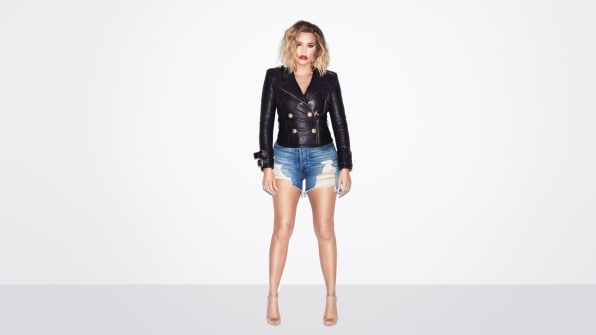
When I was launching Good American, I saw a shift in popular culture and the fashion industry. The body ideal was changing, it wasn’t about trying to be straight up and down. It was about embracing curves and everything else you were born with, not trying to conform to something else.
I think certainly more brands are starting to think that way, but for me it’s not as contrived as that. It’s not so much that I saw a gap in the marketplace and an underserved community. It’s much more about what I think is beautiful, and I have a different viewpoint than much else of culture. It really was as basic as that.
FC: Do you make a distinct effort to include women of color in your advertising campaigns?
EG: I am a young black woman, and I do feel very, very strongly about other young black women being able to see a version of themselves in our advertising campaigns. Khloe and I really share that responsibility of putting ourselves forward.
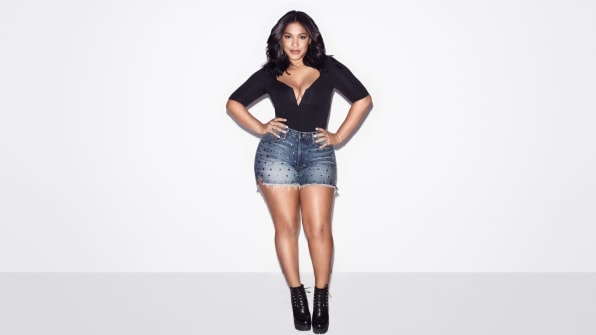
I don’t ever sit around thinking, you know, “Should we have a certain number of black women in our campaign?” We have a certain amount of women from all different races because that’s how I see the world, that’s my interpretation of beauty, and so I think it comes from a very natural place for me.
FC: Do you make a specific effort to hire from the black community?
EG: I think if you came into the Good American office and compared it to the denim company down the road (because we’re all in almost exactly the same part of L.A.), you would probably see more black people employed in my office than you would there. Because what happens is that people employ people they feel comfortable with and feel that they know. And I know a wide mix of people.
And I don’t think that women of color should only apply to companies that are run by other people of color. That would just be ludicrous. You just need to go out there and try to get jobs at companies that you love and that inspire you. In any opportunity you want to be the best prepared, the most informed, and show that you’re competent and adequate for a position.
Someone has to come first and be the first black person in that office. At some point, you’ve just got to go forward and not give a shit. You’ve got to move into your hopes and dreams, and be done with it.
FC: What advice do you have for black men and women who want to break into the fashion business?
EG: At the end of the day, I have learned that confidence in general is probably the biggest barrier to entry to achieving anything, whether that is in your career choices or how you get dressed in the morning. Khloe Kardashian and I, who have extremely polar opposite upbringings and backgrounds, if we have anything in common, is that we both have confidence in bucketloads. We’re not the most beautiful or the smartest, but we’re confident.
I can’t really quite understand where this confidence comes from in my own upbringing, but I definitely know that as you go forward in your life, and as you’re making your career choices, you need to do from a place of confidence. You need to understand your abilities. So, I would say to any women, whether they be women of color or otherwise, you really need to have confidence in your abilities.
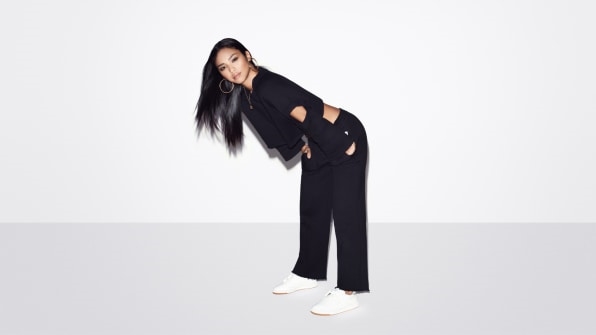
When I came up in the business working in London, I was very aware that I may have been the only black girl at the office, whether I was working at a designer’s studio, or a in a PR company. I just never looked at that as a negative thing. I felt great. I stood out for the obvious reason that I looked different from everybody, and I always thought that was a plus.
And I don’t think that focusing on race is a good place to start, because you begin to pigeonhole yourself. You put yourself in a box–and that may be a positive or negative one–but you should definitely not be segregating yourself from the start.
Fast Company , Read Full Story
(40)

